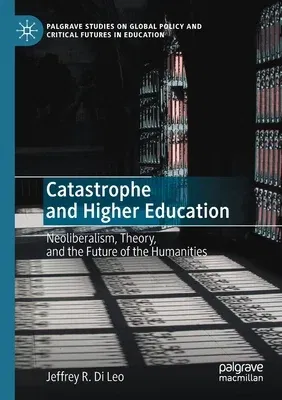Jeffrey R Di Leo
(Author)Catastrophe and Higher Education: Neoliberalism, Theory, and the Future of the Humanities (2020)Paperback - 2020, 13 December 2021

Qty
1
Turbo
Ships in 2 - 3 days
In Stock
Free Delivery
Cash on Delivery
15 Days
Free Returns
Secure Checkout
Part of Series
Palgrave Studies on Global Policy and Critical Futures in Education
Print Length
272 pages
Language
English
Publisher
Palgrave MacMillan
Date Published
13 Dec 2021
ISBN-10
3030624811
ISBN-13
9783030624811
Description
Product Details
Author:
Book Edition:
2020
Book Format:
Paperback
Country of Origin:
NL
Date Published:
13 December 2021
Dimensions:
21.01 x
14.81 x
1.65 cm
ISBN-10:
3030624811
ISBN-13:
9783030624811
Language:
English
Location:
Cham
Pages:
272
Publisher:
Weight:
381.02 gm

